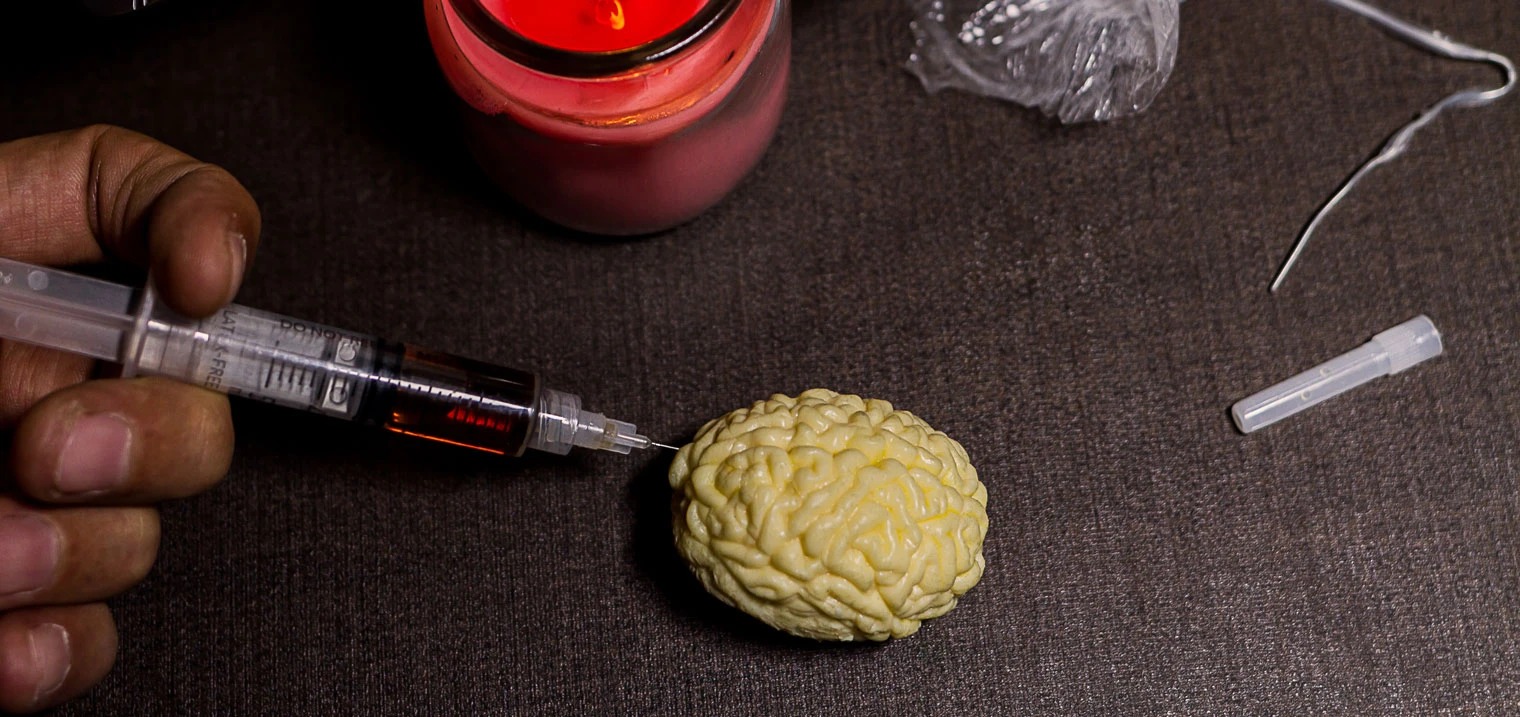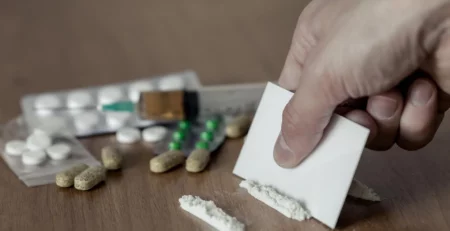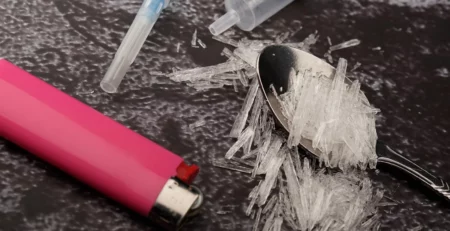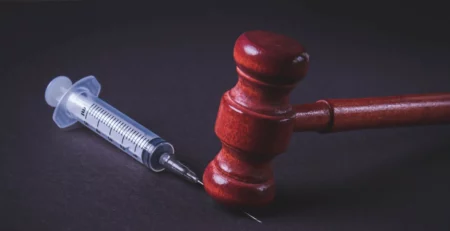What Does Meth Do To Your Brain?
Get Guidance on How Meth Affects the Brain and Body
If you are watching a loved one struggle with meth addiction, you probably feel powerless. As you witness the accumulating negative health effects, you ask: What does meth do to your brain and body? Your concern is spot on.
Methamphetamine use can lead to numerous health problems – even an untimely death can result from long-term meth use.
Icarus Behavioral Health, based in Las Vegas, Nevada, offers effective treatment options for chronic use of methamphetamines. We have seen the drug’s impact on the lives of those struggling, as well as their family and friends. Fortunately, we can also provide you with the tools to help help your loved one break free of chronic meth use.
Please continue reading to learn more about methamphetamine addiction, how it takes over the brain and body, and evidence-based therapies to support recovery.
How Meth Addiction Takes Hold in the Brain

Methamphetamine, usually shortened to meth, is a powerfully addictive stimulant drug. Shortly after using, it scrambles communications between your brain and body. Meth interferes with the brain’s dopamine receptors, creating a sensation of pleasure or euphoria after use.
The person may feel good, but the drug’s pleasure is relatively short-acting. It’s so brief that the person to use it again and with increasing doses as they build tolerance.
Besides making the person feel “high,” meth also disrupts typical brain function. Repeated use interrupts the brain’s dopamine regulations. That takeover is what causes the meth user’s extreme mood swings, agitation, anxiety, and depression.
Long-term meth use can lead to brain damage, memory loss, poor cognitive or verbal learning abilities, and a host of mental health issues.
Get Effective Meth Detox and Rehab Options at Icarus – Call Now!
The Ripple Effects of Drug Abuse and Using Meth
Your concern might also make you curious about how your loved one uses meth. Meth usually comes in a tablet form or as crystal meth.
Here are the four main ways they may use this drug, according to the US Drug Enforcement Administration:
- Ingested orally, like any other tablet.
- Smoking by heating the meth and inhaling the vapors.
- Snorting by crushing the meth into a powder and taking it through the nose.
- Injecting it after dissolving it in water and injecting it directly into the bloodstream.
The DEA also reports that people will sometimes change their meth usage method to control how fast they get high.
Meth Withdrawal Symptoms

When someone stops meth use suddenly, the brain perceives the stoppage as a false alarm. It responds to the cessation of meth use by overacting and sending out distress singles.
These negative side effects of quitting meth manifest as withdrawal symptoms:
- Intense cravings
- Anxiety
- Fatigue
- Mood swings
- Nightmares
- Appetite changes
- Sleep problems
- Body aches or muscle pain
- Sweating
- Vomiting
- Stomach cramps
- Hallucinations
- Psychosis
When in a medical or sub-acute detox setting for meth, these effects of withdrawal are relatively short-lived. Attempting detox outside of a medical setting is risky, as the side effects are unpredictable and can be severe.
Treatment professionals can provide treatment using FDA-approved medications while the person is experiencing withdrawal symptoms. The medication allows time for the metabolic processes to occur and eliminate the meth.
During this same time, dopamine levels in the brain will begin the long process of returning to their typical baseline.
Long-Term Effects of Meth: A Bridge to Severe Health Problems

The overall health effects of meth use can last for months after substance abuse treatment. It can take months for dopamine to completely reset to normal levels, depending on the intensity of the person’s meth addiction. During that period, the person will likely also need to address the other physical tolls long-term use takes on the body.
Methamphetamine Addiction and the Central Nervous System
Meth overstimulates the user’s central nervous system. During active addiction, the symptoms you might hear them mention include a rapid heart rate or high blood pressure, which could lead to a heart attack or stroke.
You might also observe unnaturally increased energy levels, especially with long-term use.
Dangerous Weight Loss and Long-term Methamphetamine Addiction
Meth’s stimulating effects lead to decreased appetite. With chronic use of meth, you may notice significant, rapid weight loss. Some people binge-use meth, forgetting to eat or drink water for days at a time.
It causes tremendous stress on the entire system and can lead to malnutrition if it continues for the long term. Extreme weight loss can also lead to eventual heart damage and can become life-threatening.
Meth Mouth and Dental Problems
One of the most visible long-term effects of methamphetamine use is meth mouth. The colloquial term refers to the severe dental problems stemming from meth addiction. In severe cases, meth can cause decaying teeth, gum disease, and even the total loss of teeth.
This condition happens primarily because of the acidic nature of meth. However, a lack of caring about hygiene while high also contributes to meth damage.
Meth Addiction Creates a High Potential for Skin Sores and Infections
Another of the observable effects of meth is the presence of skin sores and constant picking.
This occurs because methamphetamine use causes hallucinations that make people think tiny bugs (meth mites) are crawling under their skin. They respond by scratching and picking, causing open sores, scarring, and infections.
Get Accredited Treatment Programs at Icarus – Call Now!
Health Complications of Shared Needles
Those who inject methamphetamine often share needles, causing increased susceptibility to certain infections and diseases:
- HIV/AIDS
- Hepatitis B and C
- Bacterial infections
- Tuberculosis
Recycling needles can be challenging for a non-user to understand. Remember that changes in dopamine levels are driving behavior. The methamphetamine user disregards needle hygiene and instead seeks the short-term effects of the meth high.
Methamphetamine Use Intersects with Other Mental Health Issues
Long-term methamphetamine use intersects with several other mental health disorders, including:
- Anxiety/panic disorders
- Depression
- Paranoia
- Psychosis
- Trauma-related disorders
- Thoughts of self-harm
The person may have started using meth to quell these disorders. Conversely, they may develop as after-effects of meth addiction. An accredited addiction and mental health treatment center such as Icarus Nevada is the safest place to unravel this intertwining and support healing.
Therapy to Overcome the Long-term Effects of Using Meth

Using meth grants short-term pleasure but eventually causes problems in the brain. It can lead to reduced cognitive abilities, memory loss, and many physical health consequences.
Rest assured – all hope is not lost!
The team at Icarus Nevada uses evidence-based behavioral therapy modalities to treat all forms of drug addiction. We provide a supportive environment where clients overcome addiction and learn to feel good about themselves again.
Customized Addiction Treatment Options
We provide each client with a personalized treatment plan to provide the right services to suit their needs. Here are some of the standard offerings that your loved one might expect:
- Medical or sub-acute detox
- Psychological and behavioral therapy
- Medication management
- Case management
- Medication-assisted therapy
- Individual and family therapy sessions
- Peer support groups
- Relapse prevention planning (trigger avoidance tools, finding local support groups, sober living activities)
- Nutrition services
- Integration with other medical providers (dental care, physicians. other specialists)
- Stress management tools (meditation, yoga, journal writing)
We understand that meth has impaired the brain and the impact of meth on the central nervous system, and have supportive measures in place to promote emotional and physical healing. You can trust us to care for your family member.
We’ll Handle the Insurance Information

Contacting the insurance company can be a nightmare. When your loved one is ready, call our insurance specialist with their insurance card in hand. We’ll ask for plan information and contact data and make all the necessary phone calls to leverage your benefits to receive the lowest out-of-pocket costs.
This may cost as little as $0 with some plans.
We’ll call you back with the pre-authorization number, allowing your loved one to overcome their meth abuse without worrying about these details.
Up To 100% of Rehab Costs Covered By Insurance – Call Now!
Call Icarus in Las Vegas Now: Start Living Free from Meth Today
If you or a loved one needs help to find their way out of methamphetamine addiction, Icarus Nevada is here to provide effective treatment. Our goal is always a life of long-term sobriety. We accomplish this with our evidence-backed treatment programs that reverse the harm meth has done to the brain.
We also integrate with other health providers to treat additional health concerns. These can be dental issues, co-occurring mental illnesses, or other physical conditions. We will develop a plan that ends meth use in the short-term but supports long-term wellness in the future.
Call Icarus Nevada today to learn more about our treatment programs.













